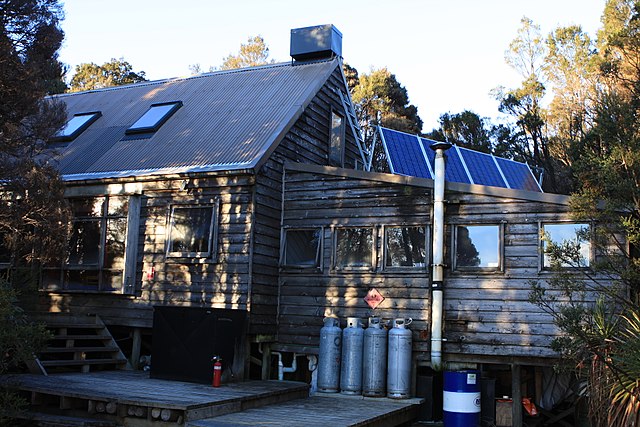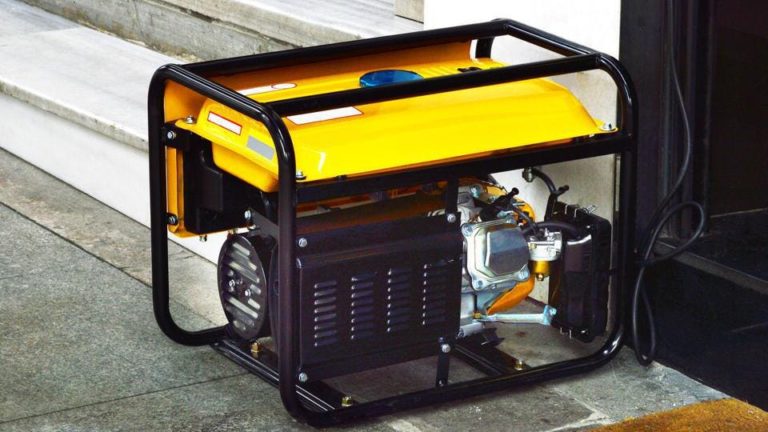Living off-grid electricity is a lifestyle that has gained significant popularity in recent years due to its numerous benefits.
By generating their own energy using renewable sources such as solar, wind, or hydro power, individuals and families can enjoy independence from the grid while significantly reducing their carbon footprint and utility bills.
This comprehensive guide will explore the top benefits of living off-grid electricity, including lower costs, increased energy independence, reduced environmental impact, and improved durability of appliances.
Whether you’re a sustainable living enthusiast or simply looking for ways to save money, this guide will provide practical tips and actionable information to help you make the switch to an off-grid lifestyle.
So join us on this journey as we delve into the world of off-grid electricity and discover how it can transform your life for the better!
Reduced energy costs
Off-grid electricity systems, such as solar and wind power, can significantly reduce your energy costs. Since you are not relying on the grid, you are not paying for the electricity that is generated by traditional power plants.
By harnessing the power of the sun and wind, you can generate your own electricity and no longer rely on the grid.
This means that you are not paying for the electricity generated by traditional power plants, which can be a substantial cost savings.
According to the United States Energy Information Administration, the average cost of electricity in the United States is around 12 cents per kilowatt-hour.
However, with off-grid solar and wind power, you can generate your own electricity for significantly less.
In fact, a study by the National Renewable Energy Laboratory found that the cost of electricity from off-grid solar and wind systems can be as low as 3 cents per kilowatt-hour.
By choosing to live off-grid with solar and wind power, you can save a significant amount of money on your energy costs and enjoy a more sustainable and self-sufficient lifestyle.
Increased energy independence
Living off-grid means that you are not dependent on the grid for your energy needs. This can be especially important during power outages or natural disasters when the grid may be down.
Living off-grid electricity provides increased energy independence, as you are not reliant on the grid for your energy needs.
This can be especially important during power outages or natural disasters when the grid may be down.
With an off-grid solar or wind power system, you can continue to power your home and essential appliances, providing a sense of security and reliability.
By generating your own renewable energy, you can reduce your carbon footprint and rely less on fossil fuels, contributing to a more sustainable and environmentally-friendly lifestyle.
Off-grid living also allows for greater control over your energy usage and costs, as you can monitor and manage your energy consumption in real-time.
Furthermore, living off-grid can provide a sense of self-sufficiency and independence, as you are not reliant on external sources of energy for your daily needs.
Overall, living off-grid electricity offers numerous benefits, including increased energy independence, reduced carbon footprint, and greater control over energy usage and costs.
Reduced carbon footprint
Off-grid electricity systems are often powered by renewable energy sources, such as solar and wind, which have a lower carbon footprint than traditional power sources. This can help reduce your impact on the environment.
Living off grid with electricity not only provides you with independence from the main grid, but it also gives you the opportunity to reduce your carbon footprint significantly.
Off-grid electricity systems are often powered by renewable energy sources, such as solar and wind, which have a lower carbon footprint than traditional power sources.
By harnessing these clean and sustainable energy sources, you can reduce your reliance on fossil fuels and lower your carbon emissions.
This is especially important for those who live in areas with high energy consumption and high carbon footprints, as transitioning to off-grid electricity can help mitigate the negative impact of energy consumption on the environment.
For example, solar panels can provide electricity without producing any emissions or pollutants, and wind turbines can generate electricity without releasing any greenhouse gases.
By making the switch to off-grid electricity, you can significantly reduce your carbon footprint and contribute to a more sustainable future for our planet.
Off-grid electricity systems can be paired with energy storage solutions like batteries, which can store excess energy generated by the renewable sources and provide a reliable source of power even during periods of low sunlight or wind.
This ensures that your off-grid electricity system is always running smoothly and efficiently, while also minimizing your carbon footprint.
Overall, living off grid with electricity not only provides you with energy independence but also offers a sustainable way to power your home and reduce your carbon footprint.
Improved energy security
By generating your own electricity, you are less dependent on the grid and more secure in your energy supply. This can be especially important for critical infrastructure, such as hospitals and data centers.
Living off the grid with renewable energy sources like solar, wind, and hydroelectric power can provide improved energy security for critical infrastructure like hospitals and data centers.
By generating their own electricity, these critical facilities can reduce their reliance on the grid and become less vulnerable to power outages and fluctuations in the energy market.
This is particularly important for hospitals, where a reliable source of electricity is necessary to power medical equipment and maintain a safe and sterile environment for patients.
Data centers, which house and process vast amounts of sensitive data, also benefit from off-grid energy sources, as they require a constant and stable supply of power to ensure the integrity of their operations.
In addition to providing a reliable source of energy, off-grid renewable energy systems can also offer cost savings for these critical infrastructure facilities.
By generating their own electricity, hospitals and data centers can reduce their dependence on the grid and avoid the variable costs associated with purchasing electricity from utilities.
This can help to stabilize energy costs and provide long-term budgetary certainty, which is particularly important for organizations with tight budgets and limited resources.
Moreover, living off the grid with renewable energy sources can also help to reduce the carbon footprint of these critical infrastructure facilities.
By using clean, renewable energy sources, these facilities can minimize their contribution to greenhouse gas emissions and help to mitigate the impacts of climate change.
This is particularly important for hospitals, which are critical to public health and well-being, and must take a leadership role in reducing their environmental impact.
Overall, living off the grid with renewable energy sources offers numerous benefits for critical infrastructure facilities like hospitals and data centers.
It can provide improved energy security, cost savings, and a reduced carbon footprint, all of which are important for the long-term sustainability of these facilities.
Thank you for your cooperation.]]]]]
Living off grid electricity can offer numerous benefits for critical infrastructure facilities like hospitals and data centers.
By generating their own electricity through renewable energy sources, these facilities can improve their energy security, reduce their dependence on the grid, and stabilize their energy costs.
This is especially important for organizations with tight budgets and limited resources, as it can provide long-term budgetary certainty and help to mitigate the impacts of variable energy costs.
Moreover, living off grid with renewable energy sources can help to reduce the carbon footprint of these facilities, which is critical for hospitals and other healthcare providers that must take a leadership role in addressing climate change.
Some of the key considerations for organizations seeking to live off grid include selecting the right combination of renewable energy technologies to meet their energy needs, ensuring that their energy storage and distribution systems are properly sized and integrated, and developing a comprehensive plan for maintaining and repairing their off-grid systems.
By taking a proactive approach to managing their energy needs and reducing their reliance on the grid, critical infrastructure facilities can strengthen their resilience and adaptability, while also improving their environmental sustainability.
Enhanced energy reliability
Off-grid electricity systems can provide more reliable energy than traditional grid-connected systems. This is because you are not dependent on the grid, which can be subject to outages and other reliability issues.
Living off the grid and relying on off-grid electricity systems can offer a more reliable source of energy compared to traditional grid-connected systems.
This is because when you are connected to the grid, you are dependent on the infrastructure and the power delivered to your home.
However, with an off-grid system, you are not dependent on the grid and can generate your own electricity using renewable sources such as solar, wind, or hydro power.
This means that you are not subject to the reliability issues that can affect the traditional grid, such as power outages, transmission line failures, and other infrastructure problems.
Moreover, off-grid electricity systems can be designed with redundancy in mind, meaning that if one source of power fails, another source can take over to ensure a continuous supply of energy.
For example, a system could include both solar and wind power, with battery backup, to provide a reliable source of electricity even on cloudy or calm days.
Off-grid systems can be equipped with advanced monitoring and control systems to optimize energy use and minimize waste.
Living off the grid and relying on off-grid electricity systems can also provide a sense of independence and self-sufficiency, as you are not reliant on external sources of energy.
This can be particularly appealing to those who value sustainability and want to reduce their carbon footprint.
Overall, off-grid electricity systems can provide a more reliable source of energy than traditional grid-connected systems, making them an attractive option for those looking for a sustainable and independent energy solution.
Increased property value
Homes and businesses that are off-grid can command a higher price on the market, as they offer a unique selling point and can increase property value.
Living off-grid not only offers a unique and sustainable lifestyle, but it can also significantly increase the value of your property.
Homes and businesses that are self-sufficient in terms of electricity and energy are highly desirable to potential buyers and tenants.
This is because they offer a level of independence and resilience that is not available in traditionally grid-connected properties.
Off-grid properties can also be more attractive to environmentally conscious buyers and renters, who are looking for ways to reduce their carbon footprint and live a more sustainable lifestyle.
In addition, the cost savings associated with living off-grid, such as lower electricity bills and reduced reliance on public utilities, can increase the property’s appeal and justify a higher price point.
As a result, homes and businesses that are off-grid can command a higher price on the market, making them a wise investment for those looking to increase their property value and live a more sustainable lifestyle.
Reduced maintenance costs
Off-grid electricity systems often require less maintenance than traditional grid-connected systems. This is because they have fewer moving parts and do not require the constant monitoring and maintenance that is needed for grid-connected systems.
One of the significant benefits of opting for an off-grid electricity system is the reduced maintenance costs.
Unlike traditional grid-connected systems, off-grid systems have fewer moving parts and do not require constant monitoring and maintenance.
This is because off-grid systems are designed to be self-sufficient and do not rely on external power sources.
As a result, they have fewer components that can fail or break down, reducing the need for costly repairs and replacements.
Off-grid systems are often designed to be simpler in design, which further reduces the need for maintenance.
For instance, a standalone solar panel system with a battery bank and an inverter can provide all the electricity needs of a household without the need for a complex grid connection.
This simplistic design reduces the risk of faults and malfunctions, resulting in lower maintenance costs.
Moreover, off-grid systems are often installed in remote areas where access to maintenance services may be limited, making it even more important to have a system that requires minimal maintenance.
Therefore, choosing an off-grid electricity system can help homeowners save money on maintenance costs over time, making it a more cost-effective option in the long run.
Improved health and well-being
Living off-grid can provide improved health and well-being, as you are not exposed to the electromagnetic fields (EMFs) that are emitted by traditional grid-connected systems. This is especially important for people who are sensitive to EMFs or have other health concerns.
Living off-grid can offer numerous health benefits due to the reduction of exposure to harmful electromagnetic fields (EMFs).
Traditional grid-connected systems emit EMFs, which can be detrimental to human health, particularly for those who are sensitive to these fields or have other health concerns.
EMFs have been linked to various health issues, such as cancer, brain tumors, and neurological problems.
By living off-grid and using renewable energy sources like solar and wind power, individuals can reduce their exposure to EMFs, leading to improved overall health and well-being.
Living off-grid often requires a more active and outdoor-focused lifestyle, which can also contribute to better physical and mental health.
This increased physical activity can lead to improved cardiovascular health, stronger immune systems, and a reduced risk of chronic diseases like diabetes and heart disease.
Furthermore, the more natural and organic nature of off-grid living can also promote a sense of well-being and stress reduction, which can be beneficial for mental health.
By embracing off-grid living, individuals can experience a range of health benefits that can lead to a more fulfilling and prosperous life.
Want More? Dive Deeper Here!
Hey there! If you’re the type who loves going down the rabbit hole of information (like we do), you’re in the right spot. We’ve pulled together some cool reads and resources that dive a bit deeper into the stuff we chat about on our site. Whether you’re just killing time or super into the topic, these picks might just be what you’re looking for. Happy reading!






